A Doctor of Acupuncture (D.Ac., D.Acu.) program can be taken completely online or in a hybrid format. In an on-campus setup. D.Ac. or D.Acu. coursework and training within the classroom setting center on a theoretical foundation. The program also fosters community engagement through actual sessions with patients.
A D.Acu. degree may be geared toward becoming an acupuncturist; however, pursuing it is a major that generally advances your career in the field of traditional medicine.
______________________________
BEST DOCTOR OF ACUPUNCTURE (D.AC., D.ACU.) DEGREE PROGRAMS
PACIFIC COLLEGE OF ORIENTAL MEDICINE
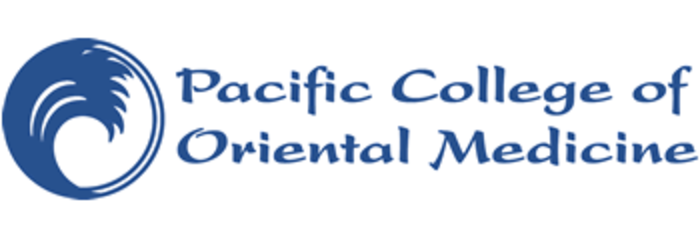
DOCTOR OF ACUPUNCTURE AND
ORIENTAL MEDICINE
School Highlights: The Pacific College of Health and Science School of Oriental Medicine is a highly respected educational institution of Oriental Medicine that provides an outstanding online transitional doctorate for graduates.
It is offered as either a DAc for students who have a master’s in acupuncture, or a Doctor of Acupuncture and Chinese Medicine (DACM) for those with a graduate background in Oriental Medicine. Despite their pathway, PCHS provides a flexible online education for students at a distance that includes exciting interactive applications for working practitioners.
Those who complete the coursework full-time can exit the program in as little as two semesters or one academic year. There are excellent part-time options available for slower learners, as well.
Graduates from Pacific College have gone on to work in group clinics, holistic health centers, hospitals, physical therapy and chiropractic offices, national agencies, and more! Many others decide to start their own thriving private practices.
Coursework Sample:
- Evidence-Informed Practice
- Integrative Pain Management
- Preventative Medicine and Public Health
Campus Location: San Diego, CA
Accreditation:
- Western Association of Schools and Colleges
- Accreditation Commission for Acupuncture and Oriental Medicine
Acceptance Rate: 100% Graduation Rate: 41%
LEARN MORE ABOUT THE PACIFIC COLLEGE OF HEALTH AND SCIENCE’S DOCTOR OF ACUPUNCTURE AND CHINESE MEDICINE
OREGON COLLEGE OF ORIENTAL MEDICINE
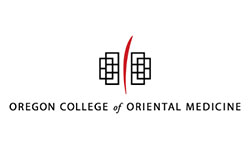
DOCTOR OF ACUPUNCTURE AND CHINESE MEDICINE
School Highlights: The Oregon College of Oriental Medicine trains students to become extremely proficient and highly competent professionals. Students can take either a Doctor of Acupuncture and Chinese Medicine, a doctoral completion track, or a Doctor of Acupuncture and Oriental Medicine.
The former is designed for masters-level acupuncturists to enhance their skills and knowledge drastically. It is a twelve-month, hybrid-format program that includes online coursework and several campus visits throughout the school year. The latter is an on-campus degree for students pursuing a doctorate.
The hybrid online Doctor of Acupuncture emphasizes collaborative care, evidence-informed practice, and systems-based medicine. Graduates go on to provide Chinese and Western medicine integrative practice and apply effective clinical specialization skills for a wide range of patients.
Coursework Sample:
- Advanced Case Analysis and Clinical Research I, II, III, and IV
- Applied Integrated Western Medicine I, II, and III
- Collaborative Health Care
Campus Location: Portland, OR
Accreditation:
- Accreditation Commission for Acupuncture and Oriental Medicine
Acceptance Rate: 100% Graduation Rate: 83%
LEARN MORE ABOUT THE OREGON COLLEGE OF ORIENTAL MEDICINE’S DOCTORAL DEGREES IN ACUPUNCTURE
EMPEROR’S COLLEGE OF TRADITIONAL ORIENTAL MEDICINE
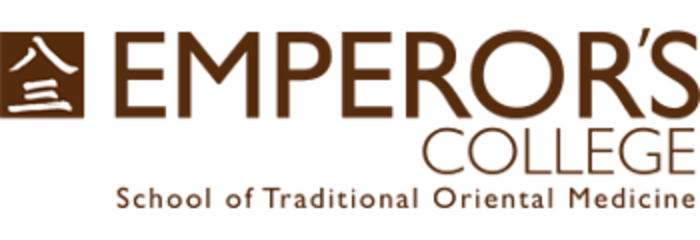
DOCTOR OF ACUPUNCTURE AND ORIENTAL MEDICINE (DAOM)
School Highlights: Students attending this outstanding school of acupuncture undergo an esteemed doctoral degree with a dual-specialty focus in Internal Medicine and Physical Medicine.
Both concentrations provide an excellent education in all of the most critical didactic and clinical areas, such as:
- Cardiology,
- Orthopedics,
- Sports Medicine,
- and Reproductive Medicine.
The 1,250-hour curriculum is incredibly thorough. It is broken down into 650 hours of advanced clinical rotations and 600 hours of didactic instruction. Classes meet once a month on a long weekend (Thursday through Sunday), and students work together for approximately 8 hours each day to complete the didactic portion of the coursework.
There is also a two-year option available. The clinical rotations are established in students’ home communities.
Coursework Sample:
- Cardiology – Internal Medicine
- Orthopedics – Physical Medicine
- Chinese Classics
Campus Location: Santa Monica, CA
Accreditation:
- Accreditation Commission for Acupuncture and Oriental Medicine
Acceptance Rate: 95% Graduation Rate: 100%
LEARN MORE ABOUT EMPEROR’S COLLEGE’S DOCTORAL DEGREE IN ACUPUNCTURE
MARYLAND UNIVERSITY OF INTEGRATED HEALTH
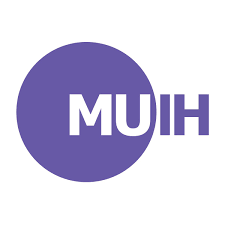
DOCTOR OF ACUPUNCTURE
School Highlights: At the Maryland University of Integrative Health, students can major in a doctoral degree in acupuncture or oriental medicine.
The degree blends course topics and theories from Constitutional Five Element Acupuncture and Traditional Chinese Medicine, and there is an overall emphasis on self-cultivation and “healership.”
The doctoral curricula are about 150 credits in length completed throughout thirteen consecutive trimesters or four years. The coursework is divided into three unique sections:
- The Tao: Health in Wholeness,
- Yin/Yang: Health in Balance,
- and Health in Movement.
Students at MUIH participate in exciting retreats, workshops, and clinical experiences that take their understanding of acupuncture and oriental medicine to the highest level.
Coursework Sample:
- Surface Anatomy and Point Location
- History of Acupuncture and an Introduction to the Classical Texts
- Diagnostic Skills Development
Campus Location: Laurel, MD
Accreditation:
- Middle States Commission on Higher Education
- Accreditation Commission for Acupuncture and Oriental Medicine
LEARN MORE ABOUT THE MARYLAND UNIVERSITY OF INTEGRATIVE HEALTH’S DOCTOR OF ACUPUNCTURE
FIVE BRANCHES UNIVERSITY
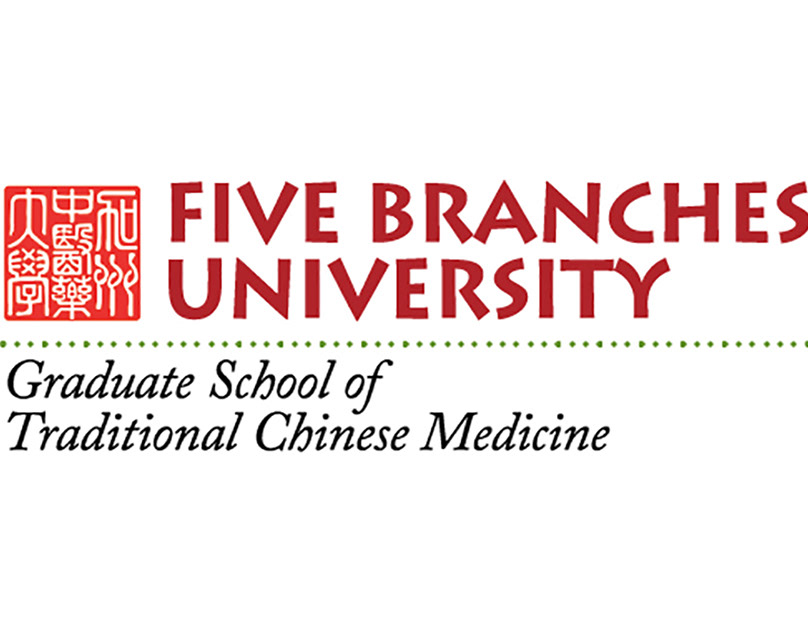
DOCTOR OF ACUPUNCTURE AND ORIENTAL MEDICINE
School Highlights: The Five Branches University is an incredibly well-accredited school of acupuncture recognized by numerous certifying organizations. The doctoral curriculum offers students unique opportunities to focus their education through specialization modules, such as those listed in the Coursework Sample below.
Five Branches also maintains partnerships with schools of oriental medicine in China, such as the Zhejiang Chinese Medical University and the Liaoning University of Traditional Chinese Medicine.
Students who are pursuing a Ph. D. can take courses at one of these sister schools and earn an international degree that is recognized across the globe. This impressive Doctor of Acupuncture degree truly stands out among programs throughout the country.
Coursework Sample:
- Women’s Health and Endocrinology I, II, and III
- Neuromuscular Medicine and Pain Management I, II, and III
- Co-management of Herbs, Formulas, and Pharmaceuticals
Campus Location: San Jose, CA
Accreditation:
- Accreditation Commission for Acupuncture and Oriental Medicine
- National Certification Commission for Acupuncture and Oriental Medicine
- Council of Colleges of Acupuncture and Oriental Medicine
- California State Acupuncture Board
LEARN MORE ABOUT FIVE BRANCHES UNIVERSITY’S DOCTOR OF ACUPUNCTURE AND ORIENTAL MEDICINE
FREQUENTLY ASKED QUESTIONS
What does an Acupuncturist do?
In the contemporary world, an acupuncturist is a medical practitioner who relieves a patient’s physical pain and stresses by stimulating specific points in the body. An acupuncturist is highly skilled in Traditional Chinese Medicine, an alternative form of medicine recognized by the World Health Organization (WHO).
The practice, which is considered safe and non-invasive involves the insertion of specialized needles into “acupuncture points”. By stimulating these body points, the acupuncturist balances the flow of “Qi” (Chi) or the life force of energy.
These principles are also rooted in an understanding of the nervous system from the Western medicine perspective. Western medicine affirms that the insertion of needles triggers the release of hormones that will promote a person’s physical and mental well-being.
What sort of accreditation should I look for in a school?
The Accreditation Commission for Acupuncture and Oriental Medicine (ACAOM) is an essential accreditation body for acupuncture at a national level. Regional accreditation bodies like the Western Senior College and University Commission (WSCUC), the Middle States Commission on Higher Education (MSCHE), and the Higher Learning Commission (HLC) may secondarily calibrate the quality of acupuncture programs.
How do I earn my Doctor of Acupuncture (D.Ac., D.Acu.) degree?
Many schools that specialize in Oriental and alternative medical degrees offer doctorate programs in Acupuncture. If you wish to enroll in such a program, you need at least a Master’s Degree in Acupuncture or any related field. Coursework and training usually reach four years, or around 13 trimesters or 8 semesters.
Some acupuncture schools have dedicated programs for bachelor’s degree holders who wish to finish both master’s and doctorate degrees in 5 to 6 years. Other colleges prioritize the admission of current acupuncture practitioners to their transitional programs instead of inexperienced students.
While a Master’s Degree in Acupuncture is the minimum educational requirement for practice, a D.Acu degree is necessary for the improvement of medical theory and practice of the discipline. Most accredited institutions require at least two years of study at the baccalaureate level.
Doctor of Acupuncture coursework involves rigorous exposure to clinical experience. Here you can observe actual acupuncturists impaling ultra-thin needles on the right spots. Your supervisor will oversee your practice with actual patients.
Lectures and hands-on training consist of a long survey of different clinical approaches, e.g. Chinese and Western nutrition therapy, qi gong, cupping, gua sha, moxibustion, scalp acupuncture, electro-acupuncture, and tuina.
Doctor of Acupuncture programs offer several opportunities to connect with diverse backgrounds through community outreach programs. A D.Acu graduate student may also opt to specialize in a specific population cohort.
For example, you can focus on developing new acupuncture approaches that will serve the needs of women. Current trends of D.Acu programs draw in the integration of biomedicine into traditional practices while seeking new methods to diagnose patients better.
What qualities will make me a successful Acupuncturist?
In addition to quality education, you should possess the following attributes to excel as an Acupuncturist:
- Empathy: You should have the ability to understand and empathize with a patient’s experience and condition.
- Compassion: You need to be able to nurture and encourage your patients in healing and genuinely care about their wellbeing.
- Interpersonal Skills: Acupuncturists must communicate effectively and build positive relationships with their patients.
- Patience: Acupuncturists must be comfortable with treating patients over long periods of time to properly notice subtle changes.
- Thorough Knowledge: Acupuncturists need to understand the fundamentals of Chinese medicine and anatomy to properly diagnose and treat patients.
- Focus: Treatment sometimes requires long periods of focus and concentration. Acupuncturists must stay alert and attentive when carrying out treatments.
- Practical Skills: The ability to listen empathically, knowledge of traditional Chinese medicine theories, and manual dexterity with needles and other instruments are essential.
- Flexibility: Working in a field that is still relatively novel, Acupuncturists need to be open-minded and willing to modify treatments as society and customer needs to evolve.
- Self-Care: Acupuncturists need to practice balance and self-care in their own lives in order to have the energy and focus to help others.
What type of degree do I need to pursue research in or educate others about Acupuncture?
Currently, no higher institution in the United States offers a Ph.D. in Acupuncture. However, colleges accredited by ACAOM maintain a network of faculty continuously producing new knowledge in acupuncture.
Most professors in these schools have earned at least a Master’s Degree in Acupuncture, a license, and relevant, extensive experience. Some professors are also holders of advanced degrees in various related fields like Physiology, Biology, and Medicine.
While official titles vary in different places, practitioners and scholars in the field of Acupuncture contribute to the academic community through journal publications. These include The American Journal of Chinese Medicine, Journal of Acupuncture and Meridian Studies, Journal of Alternative and Complementary Medicine, Acupuncture & Electro-Therapeutics Research, and Acupuncture in Medicine.
How do I earn a transitional or bridge D.Acu degree?
If you have a master’s degree in Acupuncture, you can apply for a transitional or bridge D.Acu degree that you can earn online while continuing your practice. Some institutions also award a joint degree, i.e., “Doctor in Acupuncture and Oriental Medicine” if you already hold a Masters in Oriental Medicine.
What kind of career and salary can I expect with my D.Acu degree?
Acupuncture doctors heal their patients through needles, herbs, and other therapeutic techniques. They work along with physical therapists, reflexologists, chiropractors, and naturopathic practitioners. Acupuncturists work in a clinic or a major hospital that caters to traditional practices.
Upon earning the degree, an Acupuncturist gets an annual salary between $31,200 and $156,000. According to the U.S. Bureau of Labor Statistics, the median yearly of acupuncturists and other diagnostic and treating practitioners is $72,220.
Do I need a license to be an Acupuncturist?
Yes. The majority of states require acupuncturists to obtain a license before clinical practice. Aspiring acupuncturists need to pass the National Certification Commission for Acupuncture and Oriental Medicine (NCCAOM) examinations or complete the NCCAOM certification program. Some states, such as California, hold licensing examinations for acupuncturists.
What schools offer Doctor of Acupuncture degrees?
Acupuncturists who wish to advance their career while continuing their practice have several institutional options. Some universities, like the Pacific College of Oriental Medicine, offer a transitional program 100% online without the need to attend on-campus classes.
To prevent disrupting acupuncture practice, top acupuncture schools in the country, such as Oregon College of Oriental Medicine, Emperor’s College School of Traditional Oriental Medicine, and Maryland University of Integrated Health (MUIH) offer flexible school schedules for students. A typical scenario, in this case, is a D.Acu candidate attending extended weekends or 5 days of coursework and training four times within an academic semester.
Most acupuncture schools adopt a hybrid curriculum of on-campus and online courses to emphasize quality education and research literacy among students. Others like the Five Branches University extend their scope further by offering extra learning with their Chinese university partners.
Becoming an acupuncturist in the contemporary world is an unconventional way to serve the sick without fear of invasive surgery. Your profession is the embodiment of the old meeting the new, of tradition integrating with modernity, and of the East understanding the West.
More information:
- Best Doctorate in Medicine (M.D.) Degree Programs: Salary and Information
- Best Doctor of Osteopathic Medicine (D.O.) Degree Programs: Salary and Information
- Best Doctor of Oriental Medicine (D.O.M., O.M.D.) Degree Programs: Salary and Information
